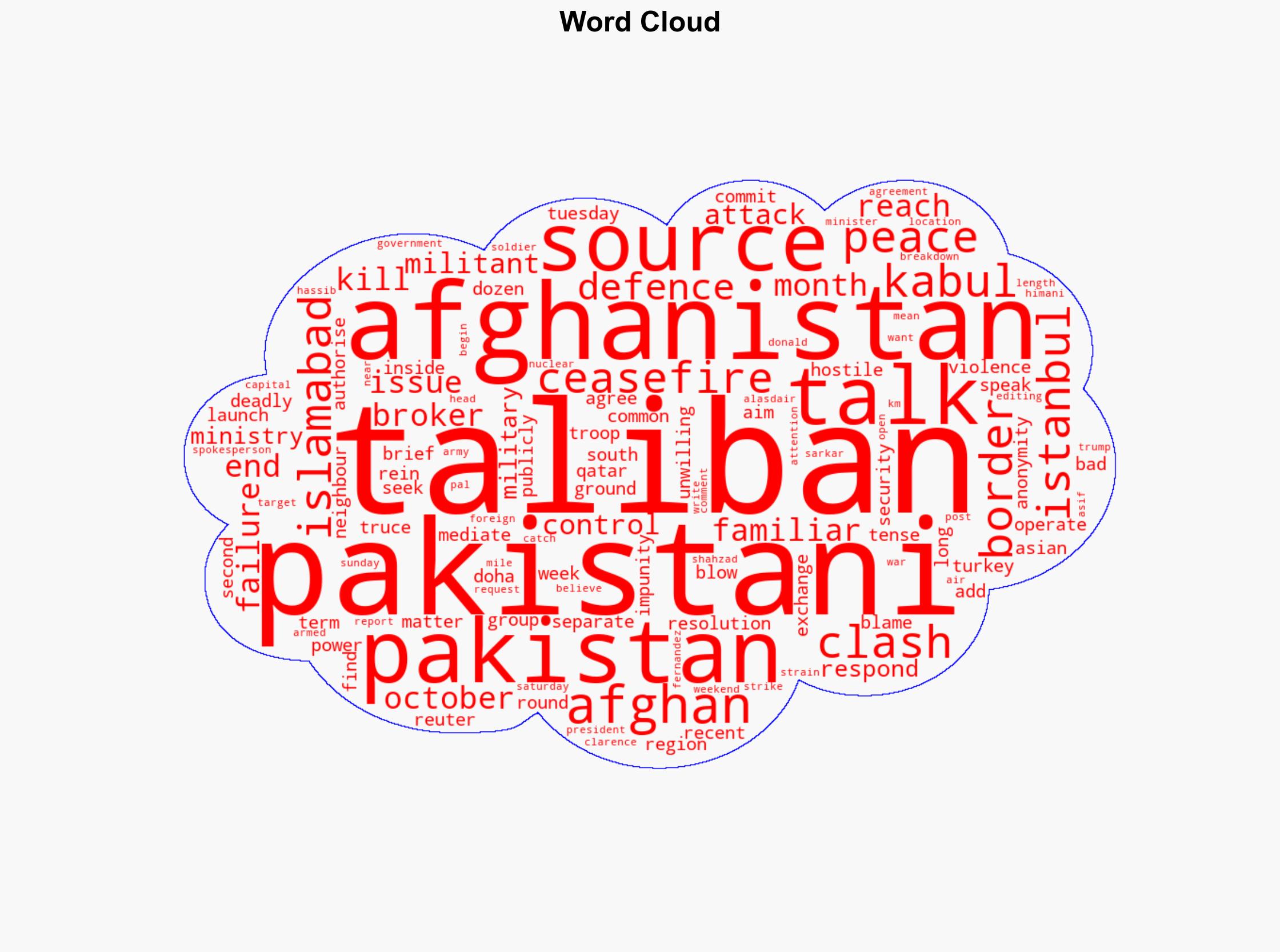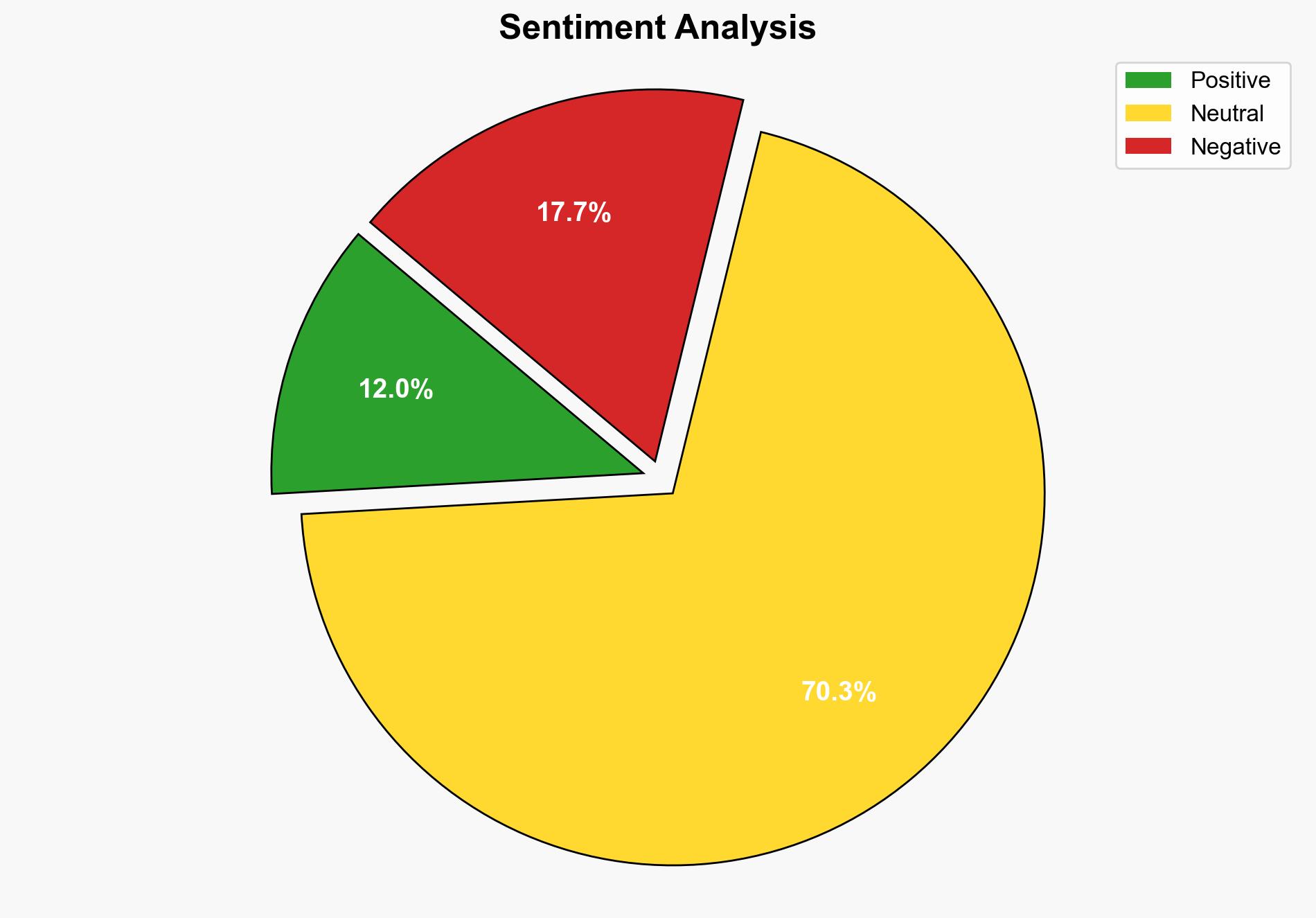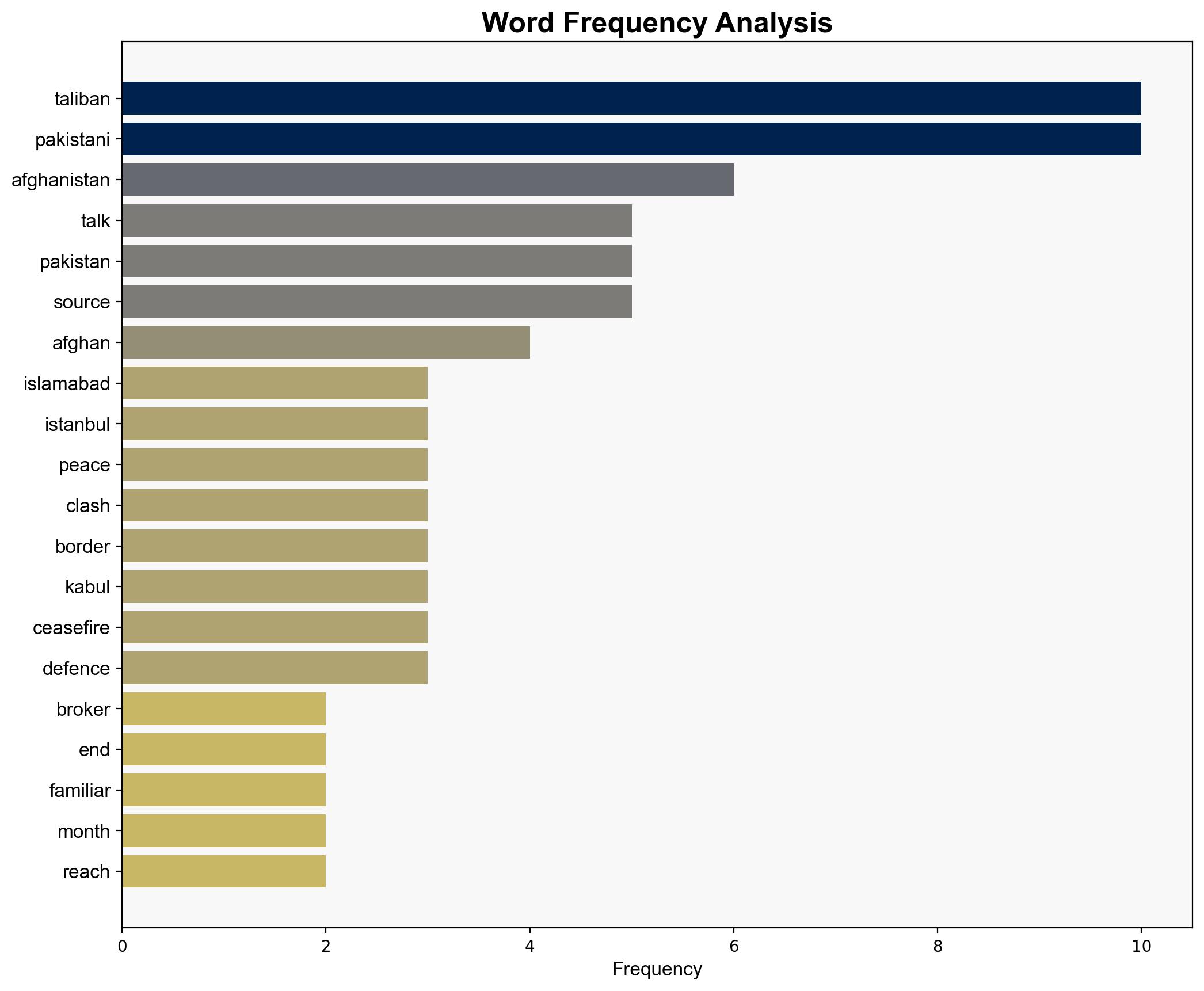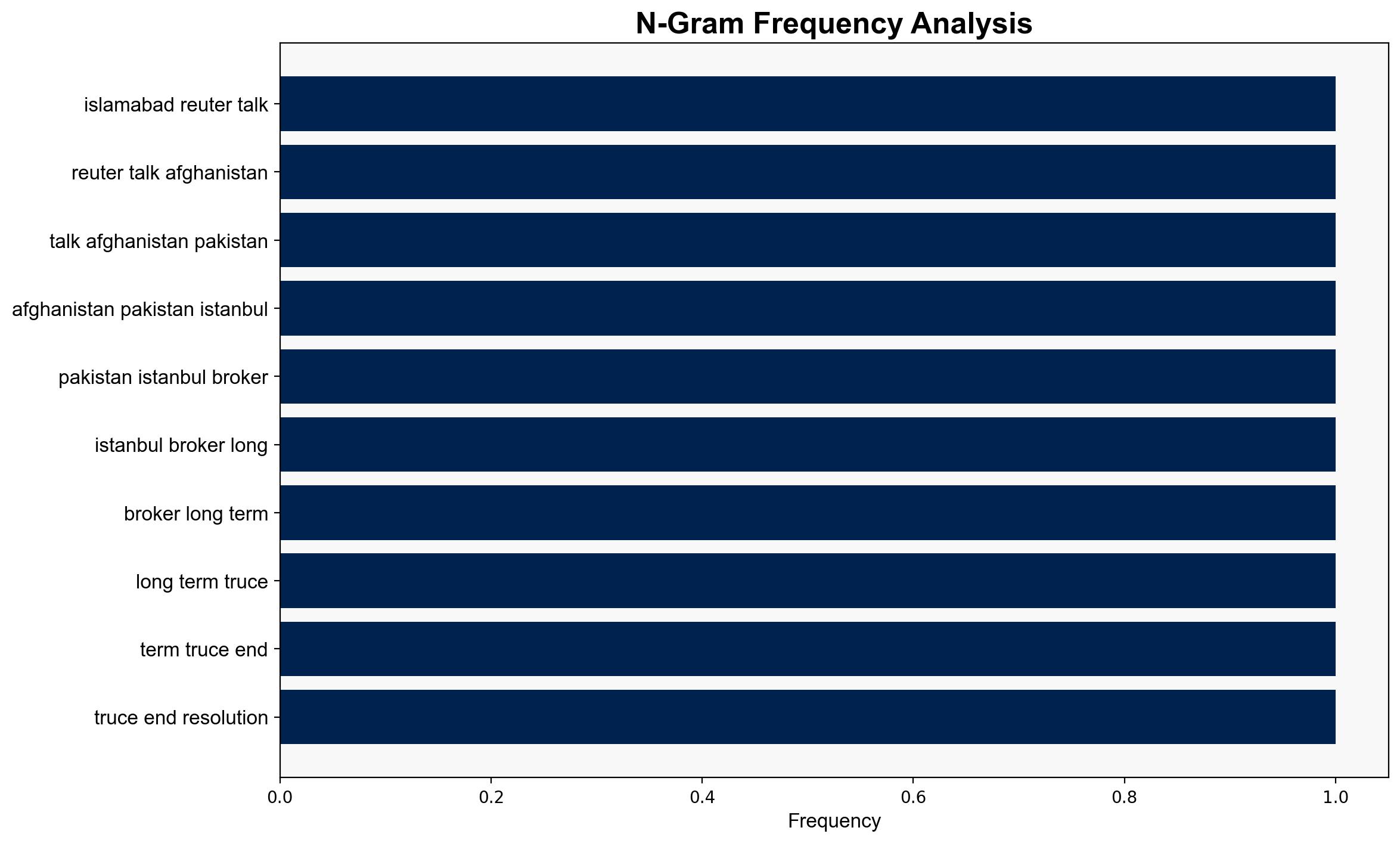Afghanistan-Pakistan peace talks in Istanbul end without resolution Afghan media Pakistan security source say – The Star Online
Published on: 2025-10-28
Intelligence Report: Afghanistan-Pakistan Peace Talks in Istanbul End Without Resolution
1. BLUF (Bottom Line Up Front)
The most supported hypothesis is that the breakdown in peace talks is primarily due to the Taliban’s unwillingness to control the Pakistani Taliban, which operates with impunity in Afghanistan. This conclusion is drawn with moderate confidence. Recommended action includes diplomatic engagement with regional stakeholders to address security concerns and prevent further escalation.
2. Competing Hypotheses
1. **Hypothesis A**: The peace talks failed because the Taliban is unwilling or unable to control the Pakistani Taliban, which continues to launch attacks against Pakistan from Afghan territory.
2. **Hypothesis B**: The breakdown is due to Pakistan’s aggressive military posture and airstrikes, which have exacerbated tensions and undermined trust in negotiations.
Using Bayesian Scenario Modeling, Hypothesis A is more likely, given the consistent reports of Taliban inaction against the Pakistani Taliban and the historical context of their relationship. Hypothesis B is less supported but remains plausible due to Pakistan’s recent military actions.
3. Key Assumptions and Red Flags
– **Assumptions**: Hypothesis A assumes the Taliban has the capability but not the willingness to control the Pakistani Taliban. Hypothesis B assumes Pakistan’s military actions are primarily offensive rather than defensive.
– **Red Flags**: Lack of public statements from Afghan and Pakistani defense ministries suggests potential information control or strategic silence. The anonymity of sources raises questions about the reliability of the reported motives.
4. Implications and Strategic Risks
The failure of talks increases the risk of escalated military conflict along the Afghanistan-Pakistan border, potentially destabilizing the region further. This could lead to increased refugee flows, economic disruption, and a resurgence of militant activities. The geopolitical balance involving other regional powers like India and China could also be affected.
5. Recommendations and Outlook
- Engage in multilateral diplomacy involving Turkey and Qatar to mediate and facilitate renewed dialogue.
- Enhance intelligence-sharing mechanisms to monitor militant activities and prevent cross-border attacks.
- Scenario Projections:
- **Best Case**: Successful mediation leads to a ceasefire and gradual de-escalation.
- **Worst Case**: Full-scale military conflict erupts, drawing in regional powers.
- **Most Likely**: Continued skirmishes with intermittent diplomatic efforts.
6. Key Individuals and Entities
– **Asif Shahzad**: Reported from Islamabad.
– **Hassib**: Reported from Kabul.
– **Alasdair Pal**: Involved in editing the report.
7. Thematic Tags
national security threats, counter-terrorism, regional focus





